Hirano’s fiction has continuously evolved over the two decades since his debut. In his first literary phase, he produced his Romantic Trilogy. Phase two was his experimental and short story period, where he sought new ways to evoke a changing world. In his fully realized third phase, he developed his own philosophical theory—dividualism. Phase four was marked by a shift in public perception after his novel, Matinee, attained bestseller status.
This essay is an adaptation of a talk the author gave in Tokyo on July 10th 2019 to mark the twentieth anniversary of his start as a novelist. In it, Hirano analyzes his own varied corpus across the four phases of his literary career.
My motivation for writing fiction was understanding my late father
This year marks two decades since my debut as a novelist. Tonight I’d like to talk about the path I took along the way. So I’ll begin by looking back on my childhood.
To tell the truth, I had little interest in books when I was young. I much preferred to go out and play baseball or soccer, and my mother tore her hair out trying to think of ways to get me to read.
It wasn’t until the end of elementary school that I began to read sporadically. And I only became a voracious reader in middle school, when I started buying books to kill time on the hour-long train ride each way.
In my second year, I happened to read Yukio Mishima’s Temple of the Golden Pavilion. I have never been the same since. The prose had a dazzling flair the likes of which I had not encountered in any of the novels I had instinctively chosen until then. I also empathized with the protagonist’s sense of alienation from society and dark thoughts. The contrast between the sparkling confessional style and grimly introspective content enthralled me.
This got me interested in Mishima himself, and I set about reading every book of his I could find in paperback: Confessions of a Mask, The Sound of Waves, even his essays. Mishima was an exceptionally well-read writer, and he would often drop names like Flaubert and Thomas Mann. Naturally I became curious and began to seek out translations of these authors. In this way, my literary horizons expanded.
Once I was fully accustomed to the works of Mann and Mishima, I returned to my point of departure and re-read The Golden Pavilion. On my first reading, my grasp of even the central theme had been vague at best. Now my overall comprehension had greatly increased, and I noticed subtle connections to other works such as Confessions of a Mask. This taught me that each work of literature is not an island unto itself but is connected behind the scenes to every other. Borges gestured to this in his comparison of literature to a great forest.
Having grown to enjoy reading, I developed the desire to try my hand at writing. It was in my second year of high school that I finished my first work of fiction. The story came out at around 80 Japanese manuscript pages, the equivalent of a longish short story. This I asked my elder sister and close friends to read. Their reactions were… well, let’s just say none of them raved about my astounding talents. What they offered instead were considerate impressions, delicately worded so as not to hurt my feelings.
For a time, this seems to have got everything out of my system. I didn’t believe that I was cut out to become a novelist, so I shifted to studying for college admission exams without a second thought. My grades began to improve, and my prep school tutor recommended law school if no career in particular called to me. I obediently took this advice and passed the exam for the Faculty of Law at Kyoto University.
I’m often asked why I didn’t major in literature. The simple answer is that I didn’t want to. I had been a voracious reader in middle school and high school, but the more I read, the more introverted I became, and I didn’t know how to handle the way I drifted away from others. Reading literature made it difficult and painful to communicate—early symptoms, perhaps, of my later absorption in the artform. The problem was that it imbued me with values different from those of daily life.
If I went on to something like law school, I believed, I could become a pragmatic person and mesh with society in accordance with Mann’s notion of the citizen. It also seemed unlikely that I could make a living otherwise.
When I moved out of my family home in Kitakyushu to live by myself in Kyoto, I didn’t bring a single book with me. But I quickly realized that this decision was based on some misunderstandings of what college life would entail.
First, when I went to buy textbooks at the student co-op bookstore, I was astonished to see shelf upon shelf of books that I’d never heard of in Kitakyushu. I began to buy them, one after another, curious about what college students were reading. Also, humanities students in those days had plenty of time on their hands due to lax monitoring of lecture attendance. There wasn’t much for students to do in Kyoto, so you either got a part-time job, started a band, or read books. (Though some went in an entirely different direction and dropped out.) I chose reading.
Despite that story in high school, I had never wished to be a novelist and certainly never expected that I would. Now I started to think that maybe I did want to become one after all.
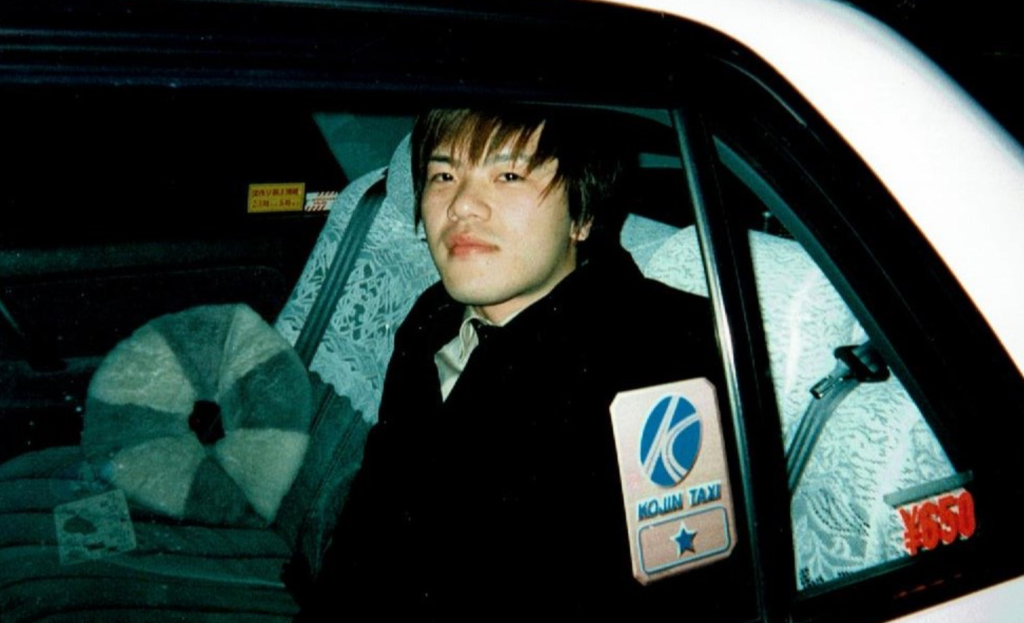
I believe that the zeitgeist of the times contributed to my change of heart. I matriculated in 1994. The following year saw the subway sarin gas attack in Tokyo and the Kobe earthquake in Kansai. Yamaichi Securities went bust, fallout from the economic bubble intensified, and the end of the millennium loomed. The Cold War was over, but no clear vision of the world’s future had emerged. Meanwhile, the internet was still the province of a tiny minority, and the sense of social malaise was intense.
Some personal experiences also contributed. These revolved around my father, who died when I was one year old. He was lying down on the tatami floor after lunch on his day off when his heart suddenly stopped. He was 36.
Given my age at the time, I was never able to recall him however hard I tried. Nevertheless, I know my father well thanks to my mother, elder sister, and relatives. They told me about his life and the day he died, doing their best to convey an image of the man I was unable to picture distinctly myself.
Even as a child, as I listened to their stories, I considered what it means for a person to die. I suspect that this early experience is deeply connected to writing. Readers of fiction initially know nothing about any character that appears. The author tries to convey an image of who that character is by describing them to the fullest extent possible with words, including various events that involved them, what the character thought or felt in certain instances, and so on. This author-reader relationship is analogous to the way my family told me about my father.
My father was sturdily built from practicing judo and hardly ever went to the doctor. My exposure to the mysterious fact that someone as healthy as him could die suddenly of a heart attack shaped my development. In the latter years of elementary school, I began to note the beating of my heart and imagine what would happen if it stopped. I would be playing, say, Nintendo with my friends and suddenly wonder whether I might pass away the next instant. If so, shouldn’t I do what I truly wanted to in life…? I began to believe that the answer was yes.
But what was it that I wanted to do? Who was I to begin with, and how did I want to live? In my teens, I agonized to no end over such questions, but in college I finally narrowed down my life’s work to writing novels.
My debut novel, Eclipse, was redolent of the times
Thus I began to write again, and finished my second story. This work dissatisfied me and I didn’t bother asking anyone to read it. I then wrote a third story. But it was my fourth story that was the first to be published. Its title was Eclipse.

I felt as though I’d hit the mark with Eclipse, so I submitted it to the literary journal, Shincho. Thankfully, the editors liked it enough to run it. And that was my debut as a novelist.
I was awarded the Akutagawa Prize for this work and garnered a lot of media attention, in part because I was a young student. But critical reception was mixed. Many couldn’t understand what a Kyoto University student in late twentieth century Japan was doing writing a novel set in medieval Europe. Previous Akutagawa-winning debut stories written by college students, like The Catch by Kenzaburo Oe or Almost Transparent Blue by Ryu Murakami, were viewed as representing the voice of their respective generations; Eclipse was seen as indulging in entirely individual sensibilities.
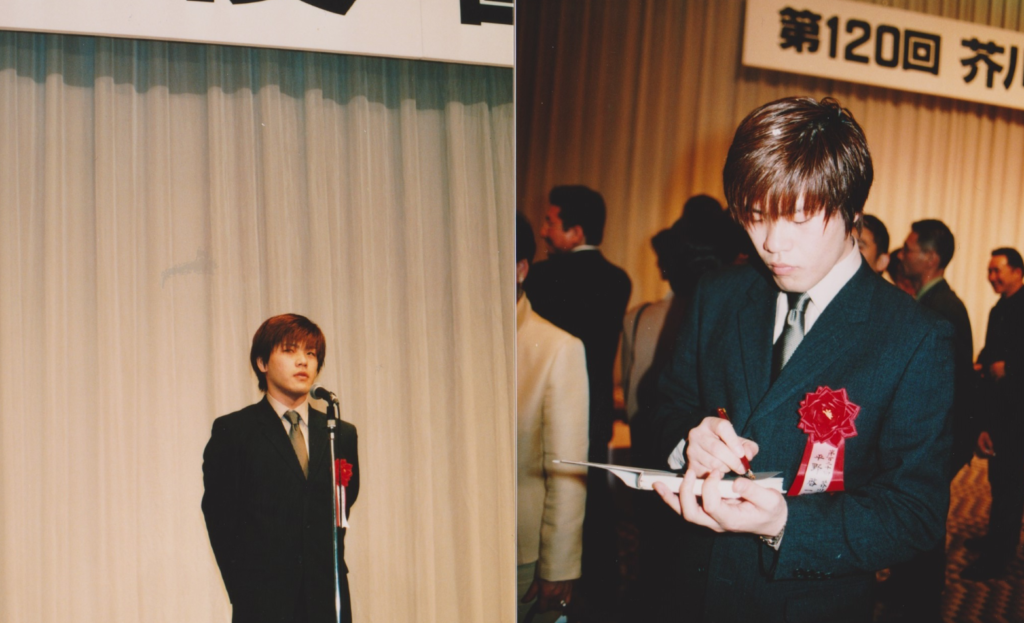
Admittedly, the Western mysticism, witch trials, and alchemy depicted in Eclipse do not appear at first glance to bear any connection to how young people lived in the latter half of the 1990s. In fact, however, the novel was born essentially of the angst that hung over Japan at that time. Suffocating under social collapse and feverishly seeking a momentary respite from this world, I had decided to try writing a story that could offer a literary experience like this. Though more specifically I was influenced by Mircea Eliade’s concept of hierophany.
The lectures of Professor Noriaki Ono also left their mark on the novel. His History of Western Political Theory was one of the few college classes I attended with any degree of seriousness. Over two years, we studied European philosophy and political thought from the Pre-Socratics to the moderns. I would later attend a seminar with Professor Ono that made an even bigger impact on me.
My reading of European philosophy had until then been fragmentary and idiosyncratic. Through his lectures, I learned to understand the tradition within the sweep of history for the first time. This was near the end of Postmodernism’s heyday, and I could finally make sense of what had given rise to the discourse of Foucault and Derrida.
Between Professor Ono’s lectures on the history of ideas, Eliade’s history of theology and philosophy of history, and my reading of Christian medieval primary source translations just beginning to be published, my interests turned to medieval Christian mysticism. I also took out Summa Theologica from my college library, and a book by Jung on alchemy.

It was while absorbing all this that I wrote Eclipse. I chose to set it in the end of the fifteenth century, when the Italian Renaissance that placed humans at the center of the cosmic order was in its infancy. New paradigms and modes of social order had yet to spread widely, and the crumbling medieval worldview lingered. Communities struggled to hold together as the values that propped them up were shaken to the root. Meaning was found in the afterlife as mysticism took off, and a sense of unity attained through denouncement of the heterogeneous. Alchemy and the Inquisition were both products of this zeitgeist.
Such was the conflicted atmosphere at the end of the fifteenth century in Europe. I found that I related to it on a very deep level as I tried to find my way in 1990s Japan. It’s no exaggeration to say that Eclipse was a work that the decade made me write. This is how I have always seen it.
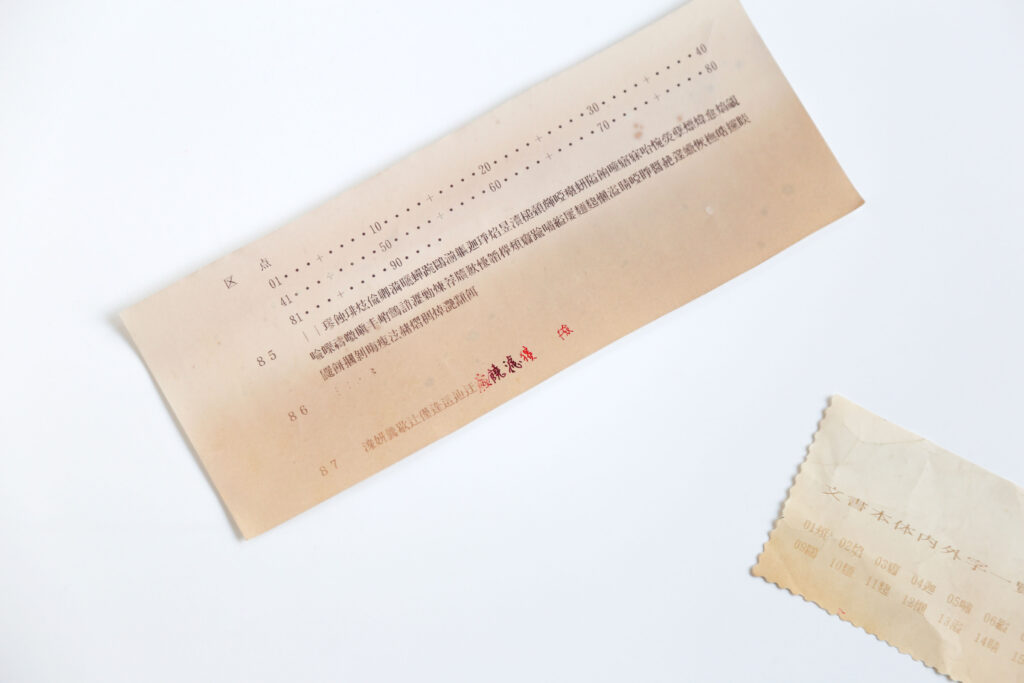
Once I had one work in print, I was able to get others published as well. The first of these was Tale of the First Moon. This I wrote hurriedly when the editor at Shincho who originally accepted Eclipse asked if I had anything else. It is an extensive reworking of the second story I cut my teeth on after starting college.
Tale of the First Moon is set in late nineteenth-century Nara. It is about a young poet who meets the woman of his dreams. The protagonist is modelled on Tokoku Kitamura, a poet and essayist of that era, and I wrote the work in a characteristically Romantic style, harkening to the fantastic as depicted in Tales of Moonlight and Rain and the work of authors like Kyoka Izumi.
I made this choice because I had been planning ever since Eclipse to turn my early work into a trilogy. I labelled it my “Romantic Trilogy” in view of the thread that tied it together. I had been heavily influenced by Romantic literature and art and perceived myself as a Romanticist. With all the problems that entailed.
The idea for a trilogy arose from my reflections about what was required to be novelist. If this was going to be what I did with my life, I thought, I needed to start off with a thorough consideration of who I was. Advice I received through the grapevine from Nobel Laureate Kenzaburo Oe around this time helped shape my approach. He said that I should under no circumstances write anything except what I wanted to until I reached 30—but that if I did so I would turn out fine. Writing only what I want has remained my golden rule to this day.
Experimental phase: rediscovering my genre
The final work in my Romantic Trilogy was Funeral March. The main characters of this novel are Chopin and Eugène Delacroix, and the motifs and writing style differ immensely from the previous two works. Several factors shaped the direction this novel took. I chose these two historical figures simply because I originally liked them. More importantly, I sought to complete my Romantic Trilogy by depicting French Romanticism, deconstructed in the style of Baudelaire, as the zeitgeist of the era.
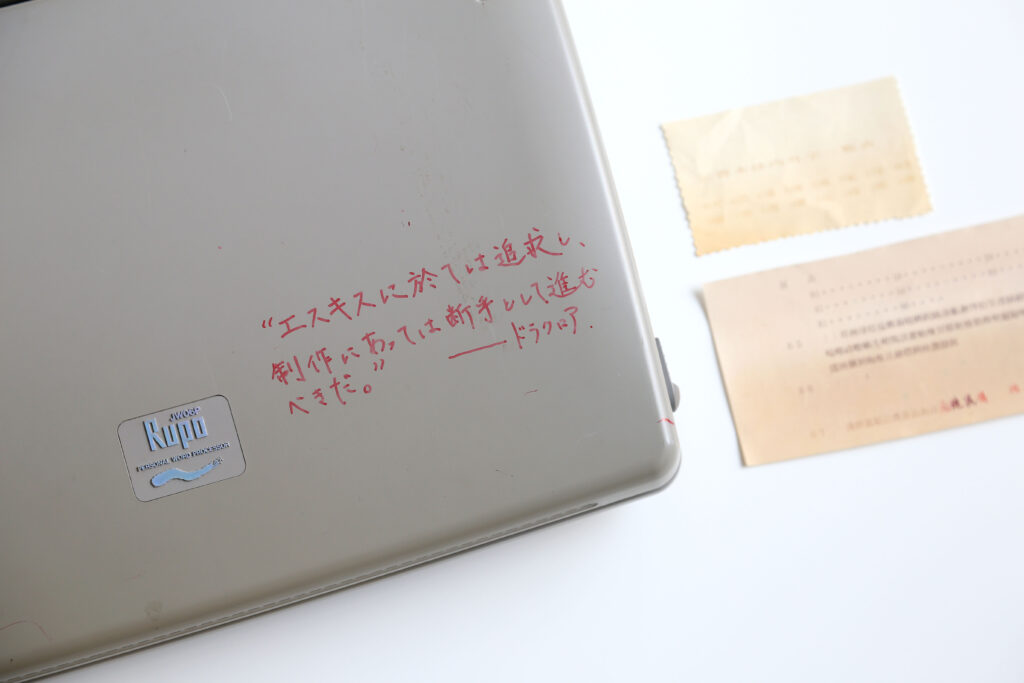
I also recognized that I could not go on writing novels that ignored the problem of communication in real life. This contrasted with my approach to writing Eclipse, when I had believed that the novel was a space for transcendent experience.
Lastly, I was reacting against the discourse around literature at the time. Critics incessantly proclaimed that literature in general and Japanese modern literature in particular were over. Supposedly, the only worthwhile task that remained was parody. I doubted very much that these critics had read and carefully analyzed all the novels of the nineteenth and twentieth centuries before making such claims out of genuine despair. They seemed rather to be parroting derivative ideas that happened to be in vogue.
Narrative criticism was in no short supply. The standard line asserted that, while many novels were trapped in cliché structures, Kenji Nakagami alone had exploded narrative form and was writing novels deserving of the word. Other critics made gimmicky arguments positioning novels as a kind of criticism. They didn’t seem to realize that narrative is just one of the many complex elements comprising a novel, alongside characters, setting, style, and expression—not to mention when and how they are written.
If I was going to persevere as a novelist, I needed to verify whether literature was truly over or not for myself. So I set about considering, through my writing, the issues modern literature confronted and which aspects of it remained effective.
While there was a lot of noise about the postmodern, I grew curious about the earlier era in which the novel form was born. I conceived of Funeral March with the intention of thinking through modernity and the novel in the act of writing one. The result was a tome 2,500 Japanese manuscript pages in length.
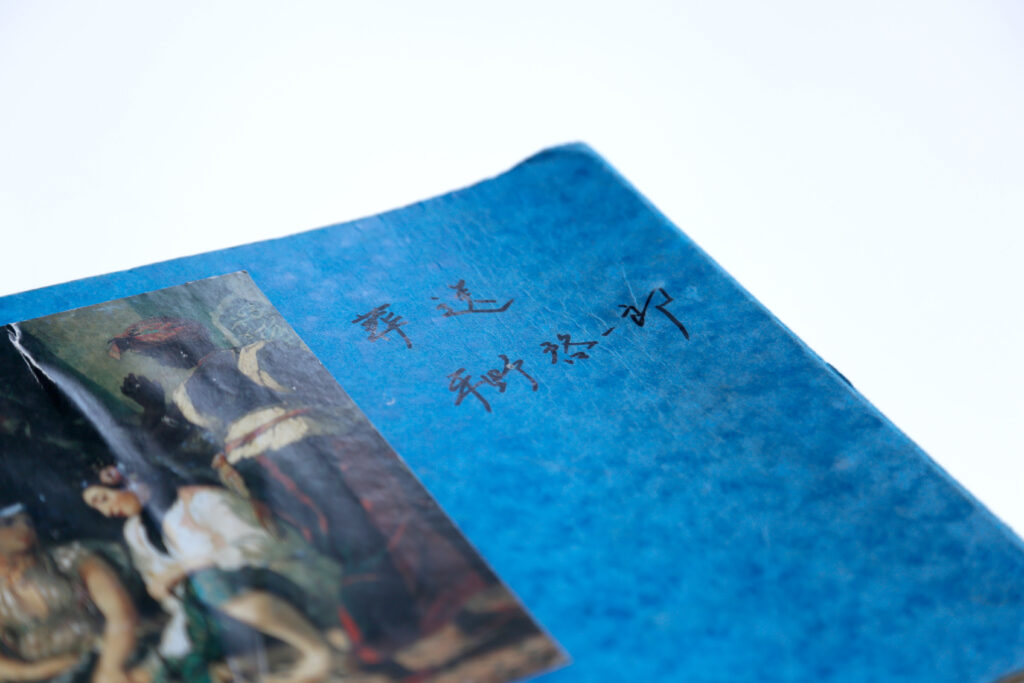

During the writing of Funeral March between 1999 and 2002, I was already transitioning into my second literary phase, where I would finally set my stories in the modern age. With the internet developing rapidly and constant connectivity becoming possible, I had the sense that the world was expanding.
After the 9/11 terrorist attacks, when the world was thrown into utter tumult, I began to question whether I should be working on a novel set in the nineteenth century. My uncertainty reached such a pitch that I grew irritated.
Meanwhile, as a novelist who had debuted young, I wanted to write a lengthy novel by the time I reached around thirty that might be considered my magnum opus. My models in this endeavor were Mishima and Oe, who had written The Golden Pavilion and The Silent Cry, respectively, when they were around thirty.
I felt I would have to capture the spirit of the times in this new work. But it was clear to me that I couldn’t write about the realities of the twenty-first century, characterized by terrorism and the internet, with the narrative techniques of the twentieth century and before.
To one degree or another, all modern novels—from Balzac’s La Comédie Humaine to those categorized as neo-romanticism and magic realism—center around some closed community. They also display extremely refined technique. The exceptions that prove the rule are novels that step outside the everyday, such as Robinson Crusoe and Heart of Darkness.
The present had already transcended the category of the closed community. The arrival of the internet did not merely accelerate globalization but also brought the diversity of our world into plain view. Trying to find represent through art a generation made up of so many different kinds of people was a fool’s errand. The multifaceted nature of each person had likewise been brought to light.
The 9/11 attacks also exposed to me the naivety of the standard conception of “dialog,” which had become mainstream in the 90s. In the end, I assert the importance of dialog, but believe that to adequately deliberate about this idea we must give consideration above all to the existence of the other who does not share our assumption of this very dialog’s importance. The diversity and remoteness of the other were two of the main issues I confronted at the time.
Another effect of the internet with implications for the novel was the way it alters our perception of space and time. The novel is an artform that unfolds within a set duration, delimited by a beginning and an end. It cannot hold together unless time flows within the world of the work.
By contrast, the internet creates a sense of temporal stall. Online, all records remain and it is normal for posts from, say, three years ago to exist alongside those of right now. Consequently, both people and societies are ensnared more than ever before in their past words and deeds. The resulting temporality individualizes we each create a personal and local flow of time by ordering in our own way whatever we have selected freely from the enormous accumulation online. Thus arises a manifold of individual times that we experience bodily as if channel surfing.
The question is, with the reader’s perception of time shifting in this way, how should writers craft their stories? There has been much speculation in the postmodern era about a shift from large stories to small ones. What has occurred in fact—due to such phenomena as increasing network connection, the stall and regression of time, and confusion between the true and the fake—is exceedingly more complex than what such abstract discussion suggested.
Our understanding of space is in need of updating in much the same way. For example, in novels up to the twentieth century, all that was required to depict a character’s life and bring it to a fully realized conclusion was to describe that character and whatever they interact with directly. The nation was the maximum spatial unit, with war novels testing the limits.
However, in the twenty-first century, we can dimly perceive the interconnection of daily life and the way each individual is impacted by everything that happens in society. It is unclear how much of the world must be described to achieve a fleshed-out portrayal of a life. Writing only about a character’s immediate surround leaves us with an overly narrow impression.
Obviously, this also implies a diversification of value systems. One problem for the European idea of natural law was that Christian values were not recognized by, for example, the Indigenous peoples of the New World. Spain’s School of Salamanca especially struggled with this. It is nigh impossible to agree on the self-evidency even of something as seemingly uncontroversial as “nature.”
When we experience multiple times flowing simultaneously and even in reverse, and the world in its unbounded interconnection and vastness ultimately eludes our understanding, how are we to give structure to all this within fiction and bring it together as a unified story?
If I couldn’t develop a form capable of handling such issues, I thought, then I wouldn’t be able to write a novel truly suited to the twenty-first century.
Since I doubted that I could develop such a form by immediately jumping into a full-length work, I decided to write a series of short stories through which to work out what was possible and appropriate for a twenty-first century novel. If we designate the Romantic Trilogy as my first literary phase, then the body of experimental short stories collected in Takasegawa, Ripples From the Dripping Clocks, Faceless Nudes, and You Were Gone, corresponds to my second.
I really tried out all sorts of things in this period. For example, in Reminiscence, I finally wrote about the death of my father. Since I could never do so straightforwardly, I chose the form of a poem. First, I wrote a poem that related the scene of his death figuratively. Then, I repeatedly reorganized the text by randomly extracting, refiguring, and changing into narration various phrases. Mysteriously, when I finished recompiling every last word, I had created a whole with more narrative depth than the original.
I consider this work a major success, though explaining why the method worked is difficult. When writing any work, a clear demarcation emerges from the overall process between words you can use and words you can’t. You also begin to see the pool of analogies available to you. In this way, words reveal not only their relatedness to the work but a certain determinate affinity with each other. I had discovered that freely recombining phrases is enough to close in on the work’s subject.
In Ice Floe, I divided the pages top to bottom and told a different story in each section. Usually we expect reading a story to involve following a linear progression organized by pagination. My idea was to make the multiplicity of time visible. The task was to root our new twenty-first century perception of spacetime in the two-dimensional medium of a book using linguistic symbols. The insight I arrived at concerned location—how the narrative could be situated. Such experimentation might seem indulgent, but from the perspective of magazine editing, visually organizing distinct and independent information on a two-page spread is entirely normal. Why do we so easily receive that information as a gestalt, when with a novel we must follow a single textual sequence in order?
These are just two examples of the innumerable semiotic and other experiments I ran. The topics I explored in this second phase became the foundational themes for all the work that followed, including my theory of the dividual. However, the general reaction to each of these works upon their publication was bafflement. Since my output was panned by critics and readers alike, whenever I meet someone who says they like anything from this period I want to shake their hand. For me, the process of writing these pieces was an essential aid to sloughing off the techniques of twentieth-century fiction and attaining those of the twenty-first.
From the limited concept of the individual to the dividual
After the wide-ranging experimentation of phase two, I was finally ready to tackle a full-length novel. This marked the beginning of my third literary phase. What resulted was Breach, a dark story about a gruesome murder where the culprit is a close relative of the victim. The climax was frequently described to me as grueling and rife with despair.
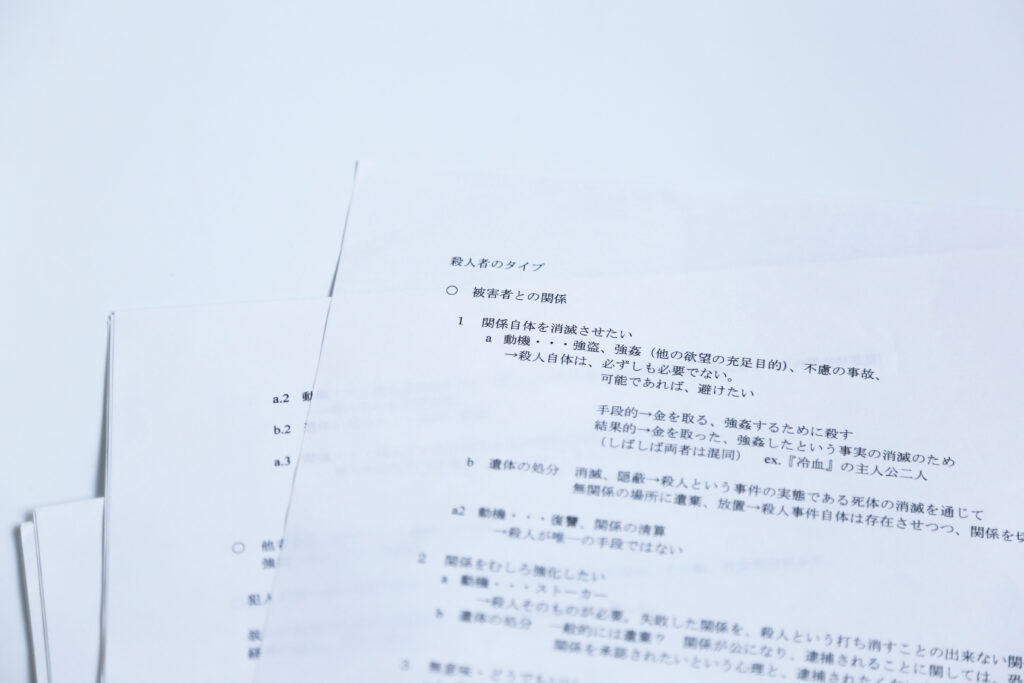
I wavered about how to end it at one point, but after researching crime and learning about the psychology of victims I could not bring myself to tack on a comforting and cliched happy ending. I had myself fallen into profound nihilism. Exploring realistic perception uncompromisingly and exhaustively was the only way I could think to overcome it. My focus was the idea that people cannot simply get back on their feet through perseverance but inevitably collapse when pushed beyond their limits.
Many readers said that the story affected them deeply and made them uncertain how they ought to live. I took such impressions very seriously. This was exactly how I felt writing it. Though I didn’t realize it until later, I was in a lot of emotional pain at the time.
Literature may once have been thought to fulfill its role if it truthfully depicted societal troubles and tragedies. But in the bewildering twenty-first century, readers seek more urgently than ever an answer to the question of how to live. I do not believe this need is something that can simply be ignored.
Another reason I could not end Breach any other way had to do with the concept of the individual. I had written all my previous stories under the assumption that this concept was valid and began Breach in the same way. But as I progressed with the novel, I became ever more convinced that the concept was running up against its limits. The protagonist, Takashi Sawano, personifies this difficulty. I had the sinking suspicion that I could not properly construct a story as long as the individual continued to undergird my thinking. In other words, I felt as though I was no longer adequately capturing reality.
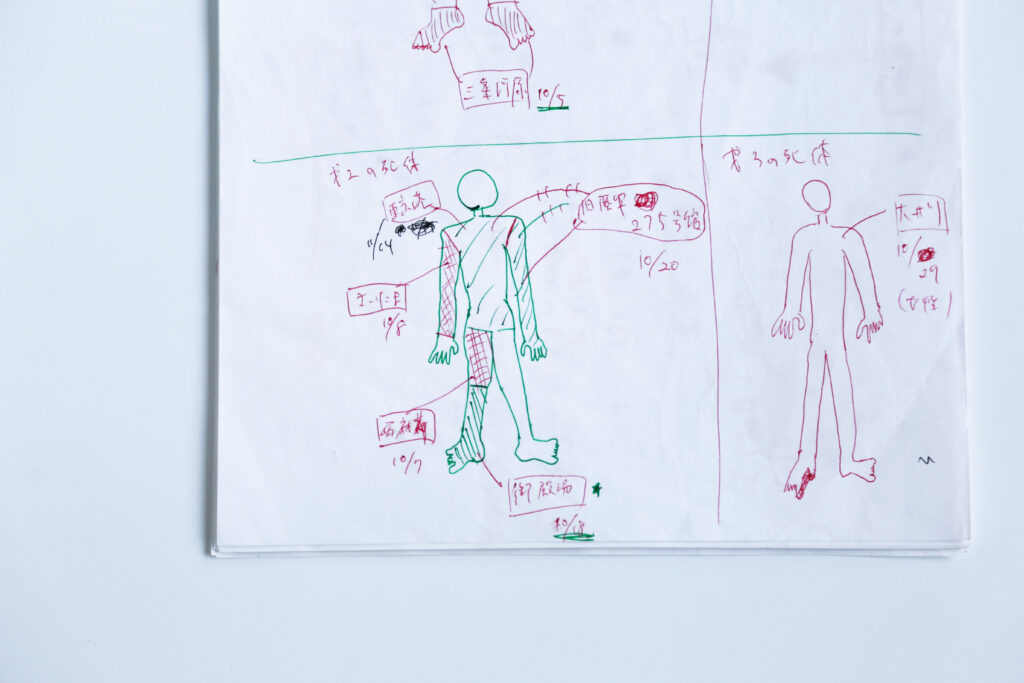
So, how ought we to live? When considering this question, I realized that the concept of the individual was precisely what was at stake. This led me to another idea: the “dividual.” In the past, we have tended to believe that we have a true self at our core, but this is not the case. People are not an indivisible whole called an “individual.” They are made up of multiple personalities that divide in response to context and the people they interact with. That is, people are a composite of dividuals. This is the basic idea of dividualism, which I would fully unveil in Dawn, a novel set in near-future America.

In my next novel, Love in Form Only, I offered a new, dividualistic interpretation of love. The story centers around a product designer who is hired to create a prosthetic leg. It focuses on the ideas of design and embodiment. Although Dawn had depicted a society where digital technologies and networks are even more tightly woven into the fabric of life than today, I did not think that the world would proceed directly to such a scenario, expecting instead reversions to the analog along the way. In Love in Form Only, I wanted to reconsider the relationship between the body and technology. This topic is currently at the cutting edge of technology as the Internet of Things, but it was largely misunderstood at the time.
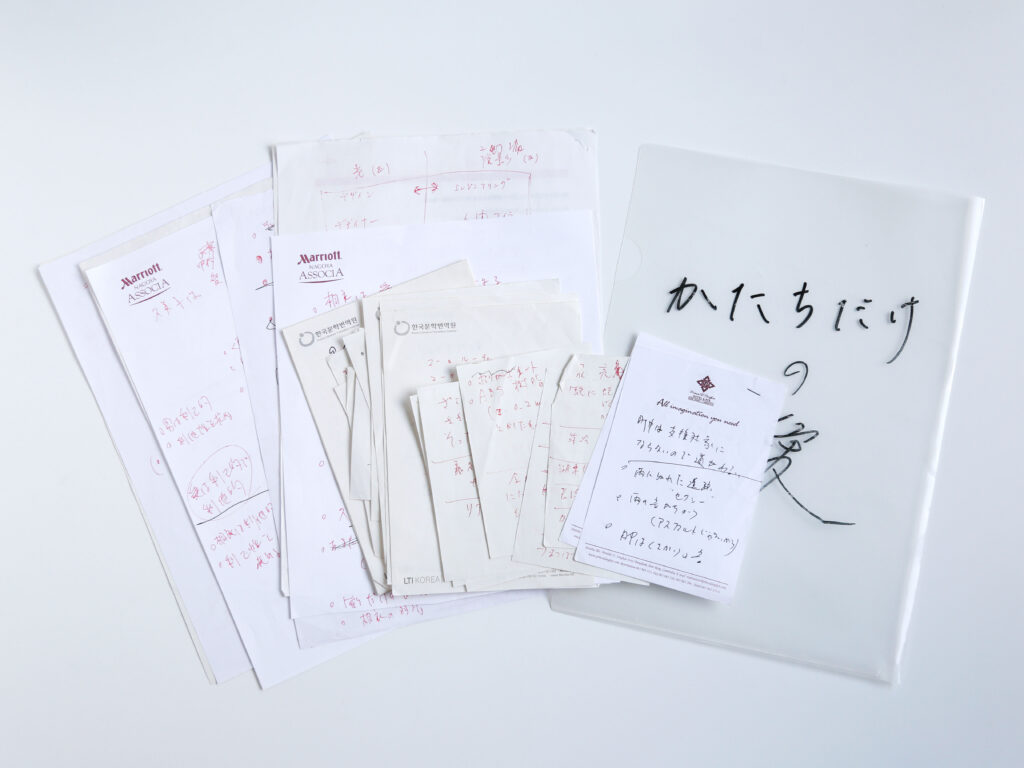
In my third novel of this phase, Fill in the Blank, I continued developing dividualism. As I happened to write this work when I was approaching 36, the age my father was when he died, I also used it as an opportunity to reflect on his death.
I had worried since childhood that, like my father, I wouldn’t see past 36. I seem to have been unable to adequately imagine growing older than my father had been. When 36 actually began to approach, I decided that I needed to write a novel about moving beyond his death if I was to do so. I started by considering what those who survive the dead feel most intensely, and realized that it had to be the desire to meet again. Based on this, I came up with a story about a dead person who returns to life. The Great East Japan Earthquake and Tsunami not long before also played a big part in the direction the novel took.
Once I had finished Fill in the Blank, I was satisfied with how I had organized my thinking about dividualism. I consider this my third phase: Early Dividualism.
The theory of dividualism holds that we all have a personality for each person we have some kind of relationship with. Since each dividual is established through its relatedness to the external world, the environments a person finds themselves in exert a significant influence. This leads to a certain kind of fatalism, questioning to what degree free will is possible.
My fourth literary phase, which I call Late Dividualism, began with a new work that shifted emphasis to the theme of people tossed about by fate. In this, I myself was deeply influenced by the age and context I was in.
Literature is the one thing I never tire of
The key to understanding the transition to my fourth literary phase is the title of one of my short story collections: Transparent Labyrinth. If we were trapped in a visible labyrinth, then obviously we would accept that the only way to proceed is to follow the course of the walls. But our current social environment and systems coalesce to fix each person’s mode of being externally. Since we are barely aware of this, we feel as though we are living according to our free will when in fact, we may be in a condition comparable to wandering a transparent labyrinth. Perhaps our path ahead is already determined and we have almost no choice in what we do. I expressed this problem symbolically in the title story.
My next novel, Matinee, appears to be a simple love story. In fact, I was initially impelled to write it by the desire to develop a story that was fatalistic. But I wanted it to be beautiful enough to help readers briefly forget reality and to thereby offer a sense of relief—one of literature’s functions. This was important to me because world events had left me feeling exhausted as the 2010s got rolling and I was becoming increasingly appalled with daily political and economic news. Although I was preoccupied with reflections on how we ought to live in my Early Dividualist phase, I had been known for an orientation towards transcendent experience since Eclipse.
Early on, I decided that the protagonist of Matinee would be a musician, but I struggled to decide which instrument he should play. I was done with piano after Funeral March. Violin and cello both seemed promising, but an instrument that dragged in an orchestra might clutter the story with too many characters. I was already leaning towards a solo performer when top classical guitarist Shinichi Fukuda gave me a CD of his new renditions of Bach. The music was so compelling I decided to go with guitar and conducted several interviews with Fukuda and other guitarists in developing the story.
Since Matinee was an immersive story that tended towards the sublime, for my next work I wanted something closer to the everyday—a book through which I could consider what it means to live in modern Japan. The resulting novel, A Man, asks what would happen if someone close to you who you are supposed to know well turned out to be a different person. But rather than take this conceit in a spiritually desolate direction, I sought to depict in literature the possibility for kindness and sincerity in an age where society is losing these values.
This covers all of my novels that have been published to date. My upcoming novel, True Intentions, was serialized in newspapers across Japan starting September 2019 and is set for release in 2021. I have a feeling that this will be the final work in my fourth literary phase.

True Intentions further explores issues I’ve grappled with to date, reflecting on the relationship between the real world and technological progress. Artificial intelligence continues to develop at an astonishing pace, and I expect use of virtual and augmented reality to increase over time. If this is so, the presence of our dividuals will be felt in virtual worlds more and more. Given how painful reality can be, I wouldn’t be surprised to find people who try to live the majority of their lives in VR.
True Intentions is about a man who hires a company to create a virtual being identical to his beloved mother after her death. I hope to explore the implications of technological development for our interpersonal relationships and the concepts of life and death.
Since the novel touches on AI and VR, it might sound like SF. In fact, our world is progressing toward such a future at incredible speed. The world of the 2030s depicted in Dawn may have been SF ten years ago. Now it seems highly plausible. Novels are by their nature inseparable from the society and age in which they are written. However fantastical the story you write, it will not be accepted unless it is firmly rooted in an awareness of reality.
You may discover endless new narrative possibilities even if you restrict your attention to the history of literature. But if your story bears no connection to the lives of contemporary readers, it is not a story that they truly need.
What are people today thinking as they work out how to lead their lives? This has always been a central concern of my writing. Rather than merely analyzing the world or offering up some nebulous ideal, I believe that literature should always reflect on the sort of world we should want in the here and now.
To think in this way, you must keep one eye on reality and the times as you write, and believe that your novels have the power to change hearts and minds. As a mode of expression, the novel doesn’t have an especially long history. I have been a novelist for over twenty years, and if you count my years as a reader my relationship with literature is even longer. Nevertheless, I never get tired of it. By nature, I tire of most things sooner or later, however passionate I am at first. Literature is the one exception.
Every time I write, I find it challenging. From my debut to my most recent novels A Man and True Intentions, every one of my works has been challenging to write. This is what gives me a sense of purpose, and the drive to keep trying new approaches in every new story.
Nothing brought me more solace or taught me more in my anxiety-ridden teenage years than literature. I believe that literature can save people because literature saved me. This is why I am committed to writing stories that aren’t simply be consumed and forgotten but that participate deeply and directly in the lives of people existing today.
